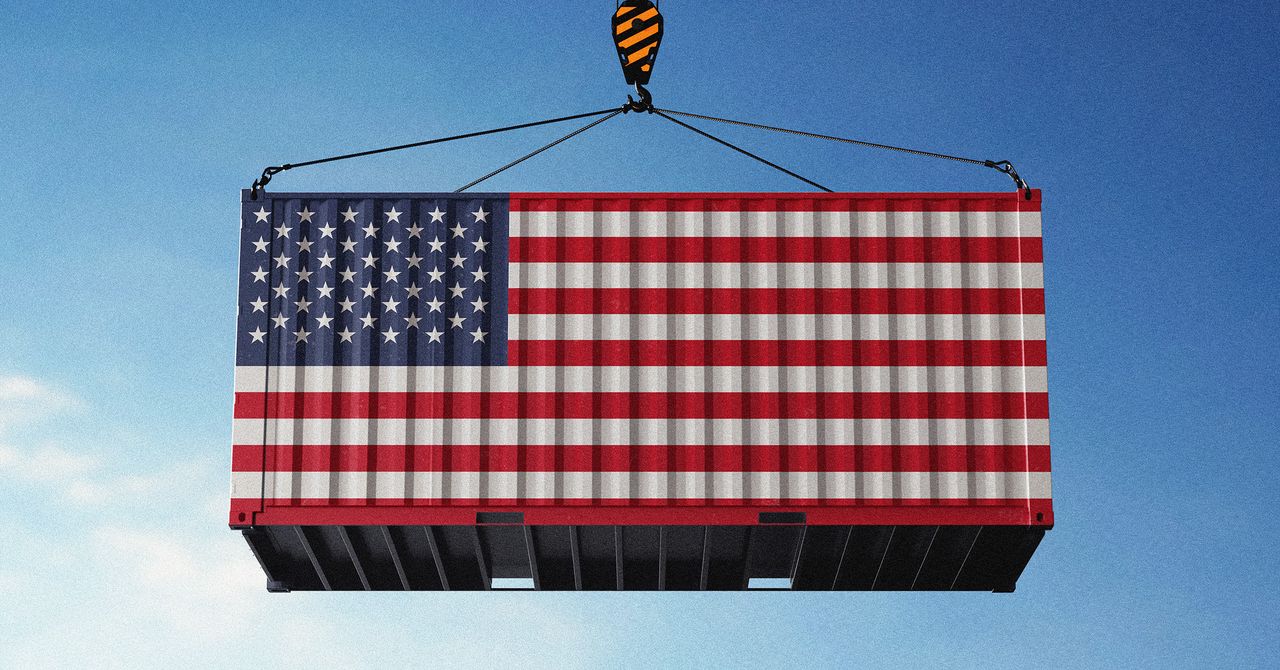WIRED reached out to more than 70 companies, from electronics manufacturers to coffee companies, asking if they could share any details about potential price increases on imported products. The vast majority, like Garmin, Oura, Amazon, Logitech, OnePlus, and Steelcase, declined to comment, while others said it was too early to discuss pricing. Still, some companies responded.
Photograph: Julian Chokkattu
Popular home office furniture brand, Branch, says it has been preparing for trade policy changes for some time, finding efficiencies in its supply chain to absorb the impact of tariffs with minimal increases to pricing. The company says there’s a lot of uncertainty: “Candidly, we may need to adjust some prices in the coming months, particularly for products sourced from countries where tariff rates came in significantly higher than we anticipated.” Branch says if there is a price change, it will be to protect margins rather than to expand them. It’s worth noting that Branch’s Ergonomic Chair, long recommended in WIRED’s Best Office Chairs guide, used to be $339 but is now $359, though Branch says the price was adjusted before tariffs were announced.
Drip coffee maker Moccamaster says it may absorb “some short-term pressures at the US level,” though it’s too early to confirm whether prices will increase. Portland-based coffee machine maker Ratio says it’s holding prices steady through April, but “tariffs this high will unequivocally compel higher retail prices—potentially much higher. We are a small business that was already struggling with increasing costs.”
Moment, which makes camera bags and photo equipment, says it will increase prices on “most items” by $5 to $10 next week, though the company says some prices will stay the same and some will go down. “Unfortunately, these tariffs make it impossible for us to continue without cheapening the quality, laying off the team, or forcing our mom-and-pop suppliers out of business,” the company says in a newsletter it sent out to subscribers.
Photograph: Nena Farrell
Supernote, a company that makes digital notebooks, pointed to a statement it made on Reddit. It’s implementing a price increase in the US by the end of April: “We are actively adjusting our supply chain to mitigate the long-term impact of these tariffs,” the company says on Reddit. ”These adjustments take time, especially with the new tariffs hitting everything from people to penguins, which makes the situation more complicated. It’s going to be a tough time.”
The company behind smart bird feeders from brands like Harymor and Sehmua, says it’s exploring strategies to absorb costs internally, with no price adjustments—”We are facing rising expenses that directly affect our profit margins. … We recognize the competitive nature of the market and the price sensitivity of our customers.”
Sony seemed to indicate that its new flagship, the Bravia 8 MK II TV, could undercut its previous flagship A95L on pricing, but in a post-tariff world, prices have jumped by $500. The 65-inch model costs $4,000, and the 55-inch TV is $3,500. Meanwhile, Samsung hasn’t responded to our request for comment yet, but the company told Reuters the tariffs don’t affect its TVs as much since most are produced in Mexico.
